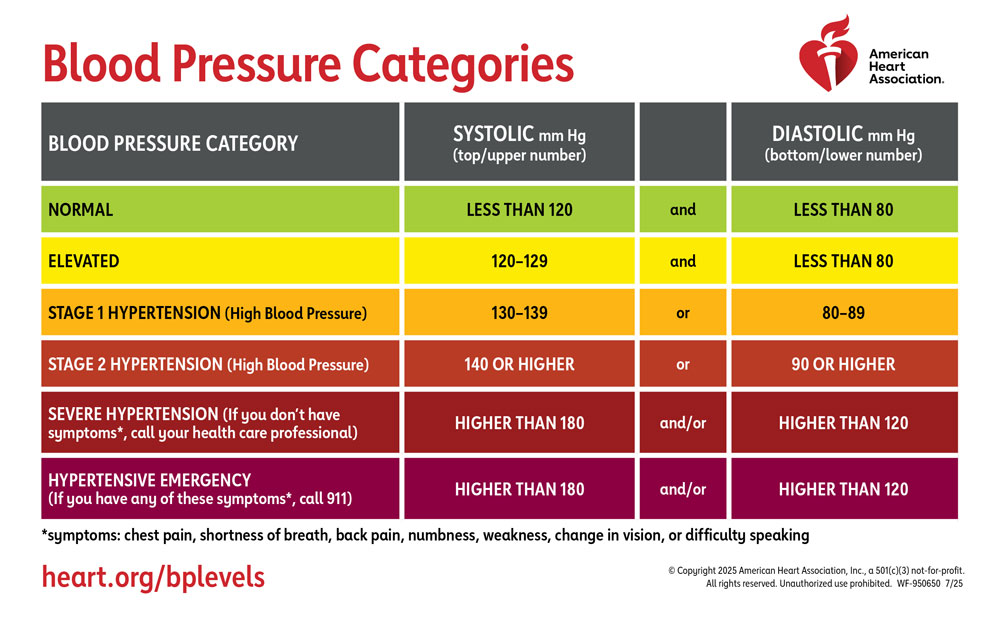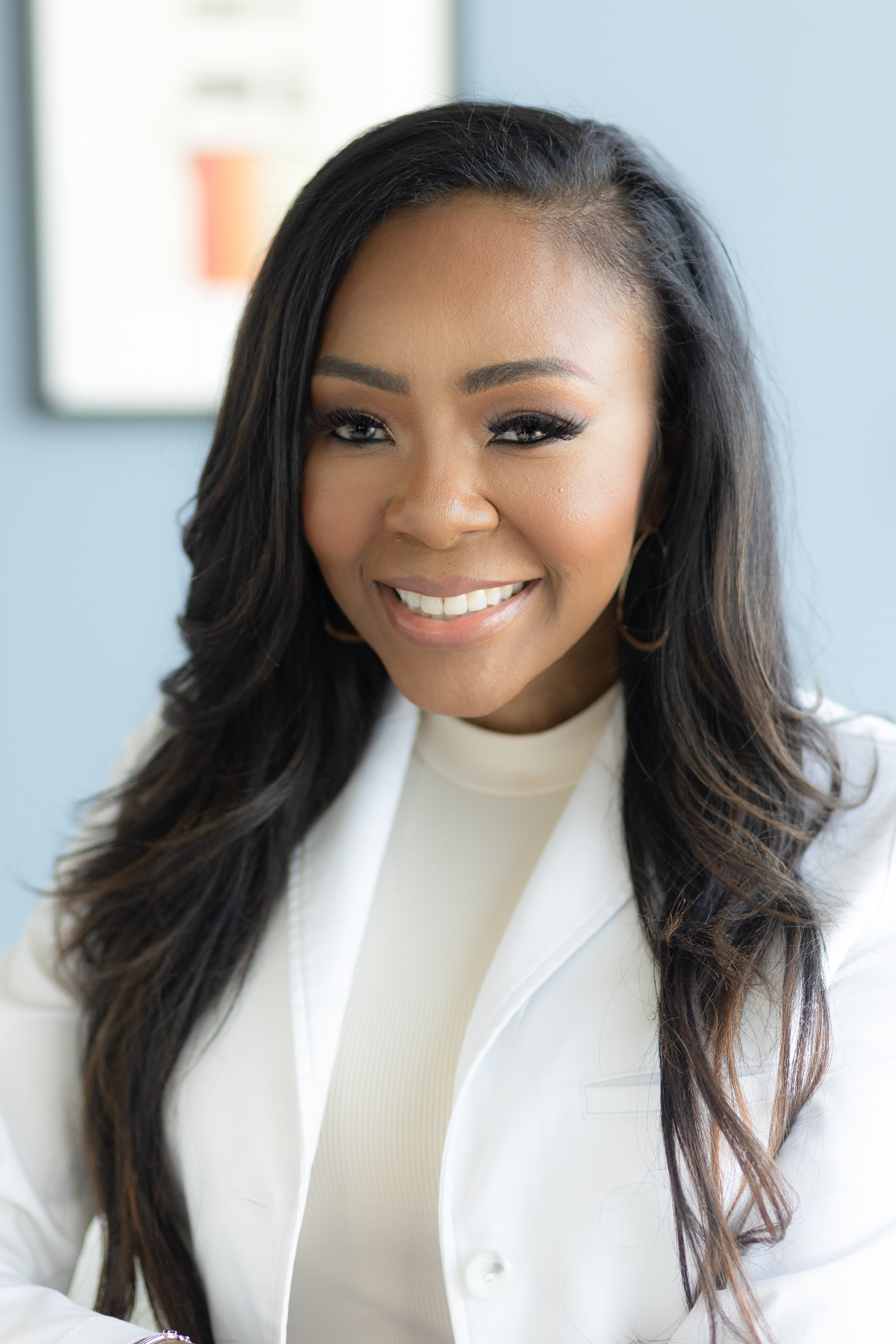AARP Hearing Center

Do you know your blood pressure numbers?
If you paused for a second or felt unsure, you’re not alone. Many patients have told me, “I feel fine, so I figured everything’s okay.” But here’s the thing—high blood pressure, or hypertension, often has no symptoms. You can feel perfectly fine while your heart is quietly under pressure. Left untreated, it can lead to stroke, heart disease, kidney failure, and vision loss.
Knowing your numbers isn’t just about a doctor’s visit—it’s about protecting your life.
The Silent Risk
High blood pressure can sneak up on you without warning. No pain, fever, cough, or rash. Years can go by without realizing anything’s wrong, while your arteries suffer wear and tear—like a slow drip that eventually cracks a pipe. This is why it’s called the “silent killer.”
The good news? You can get ahead of it with the right tools, support, and lifestyle habits.
What Your Numbers Mean
Blood pressure is measured as:
- Systolic (top): Pressure when your heart beats.
- Diastolic (bottom): Pressure when your heart rests.
Think of your heart as a pump and your blood vessels as hoses—too much pressure can cause damage over time.

You don’t need to memorize the chart—just know your numbers and what they mean for your health.
“But I Feel Fine…”
This is the most common thing I hear. But ignoring high blood pressure is dangerous. It raises your risk for stroke, heart attack, kidney damage, sexual dysfunction, and even cognitive decline.
You wouldn’t ignore a smoke alarm just because you don’t see flames—so don’t ignore high blood pressure just because you feel okay.
Take Control at Home
A home blood pressure monitor is one of the best tools you can have. I recommend an automatic upper-arm cuff. For accurate readings:
- Sit with back supported, feet flat, arm at heart level.
- Rest for 5 minutes first.
- Take two readings a minute apart and average them.
- Check at the same times daily—morning and evening are best.
Bring your log to your doctor’s visits so they can see trends, not just one snapshot.
Lifestyle Tweaks That Work
You don’t have to change everything overnight. Start small and stay consistent:
- Cut back on salt. Most sodium hides in packaged and restaurant foods. Aim for less than 1,500 mg a day.
- Eat more potassium-rich foods. Bananas, sweet potatoes, leafy greens, beans, and yogurt help balance sodium.
- Get moving. Just 30 minutes a day—walking, dancing, swimming—strengthens your heart.
- Watch your weight. Losing 5–10 pounds can lower blood pressure, cholesterol, and blood sugar.
- Limit alcohol and quit smoking. Both raise blood pressure and harm your heart.
- Manage stress. Deep breathing, journaling, prayer, music, or a short walk can calm your system.
Other Key Heart Health Factors
- Control Cholesterol: High cholesterol can clog arteries. Choose fiber-rich foods, healthy fats, and limit saturated fats.
- Manage Blood Sugar: High blood pressure and diabetes often go together. Aim for fasting glucose between 80–130 mg/dL and an A1C below 7% (unless your provider says otherwise).
- Maintain a Healthy Weight: Less strain on your heart supports healthier numbers.
- Prioritize Sleep: Get 7–8 hours of quality sleep to regulate blood pressure and support healthy habits.
- Reduce Stress: Chronic stress can raise blood pressure over time. Find relaxation techniques that work for you.
When Lifestyle Changes Aren’t Enough
Even with the best habits, some people need medication—and that’s okay. Blood pressure medicine is safe, effective, and often life-saving.
If your numbers are consistently above 130/80, especially with other health conditions, talk to your provider. High blood pressure isn’t something to “watch”—it’s something to manage.
Confidence Over Fear
Managing blood pressure is about building confidence—not fear. Remember:
- Understand your numbers
- Ask questions at appointments
- Use tools like a home cuff
- Make small, consistent choices
One step, one meal, one reading at a time.
Final Word
You don’t need perfection—just progress. Check your blood pressure this week and make one small change. Over time, these choices add up to big results for your heart, independence, and quality of life.
Let’s take care of the one body we get. Because it’s not just about living longer. It’s about living well.
***The information shared in this article is provided for educational purposes only. It is not intended to replace professional medical advice, diagnosis, or treatment from a qualified healthcare provider. If you are experiencing a medical emergency, please call 911. Always consult your healthcare provider for any medical concerns, and do not delay seeking professional advice based on the content found on this website. AARP is not responsible for the consequences of any decisions or actions taken in reliance upon or as a result of the information provided.***

ABOUT NURSE ALICE BENJAMIN
With over 25 years of healthcare experience, “Nurse Alice” Benjamin, MSN, ACNS-BC, FNP-C is a nationally board-certified family nurse practitioner and clinical nurse specialist. Her expertise spans from critical care and emergency medicine to cardiology and community health.
In addition to her clinical work, Nurse Alice is a respected educator, media health contributor, and public speaker who has collaborated with organizations such as the American Heart Association, AARP, and NBC News.
She’s the host of the “Ask Nurse Alice” podcast, an AARP ambassador, and a passionate advocate for making healthcare clear, compassionate, and empowering for everyone.































































